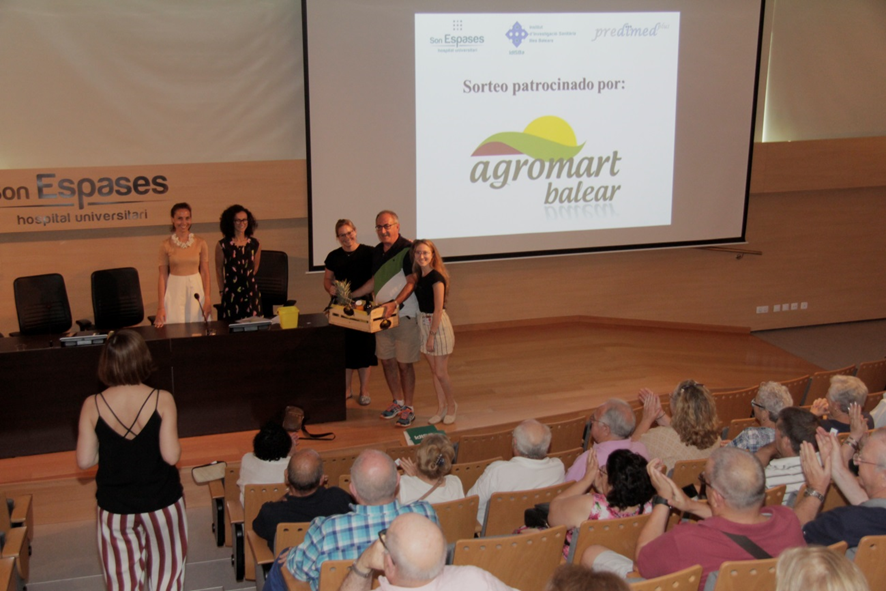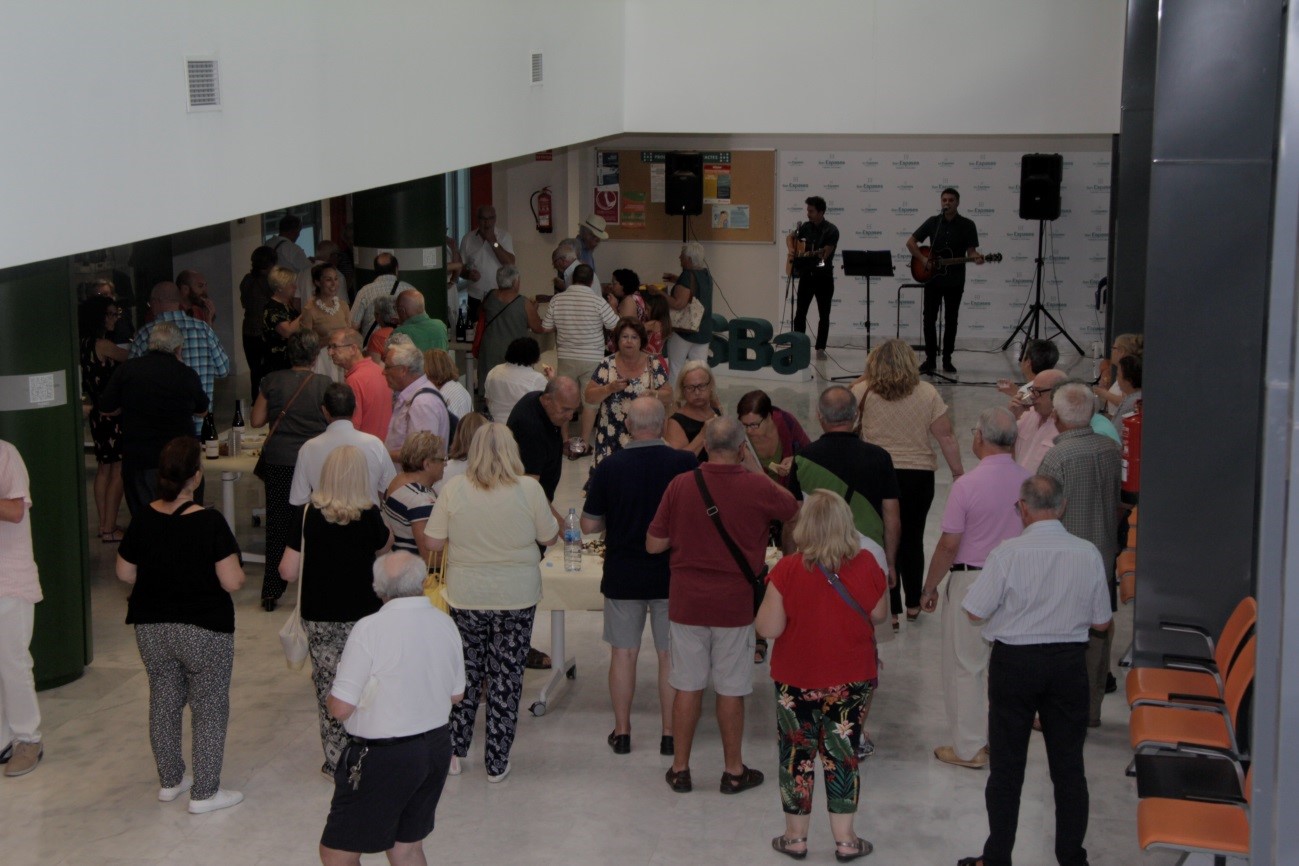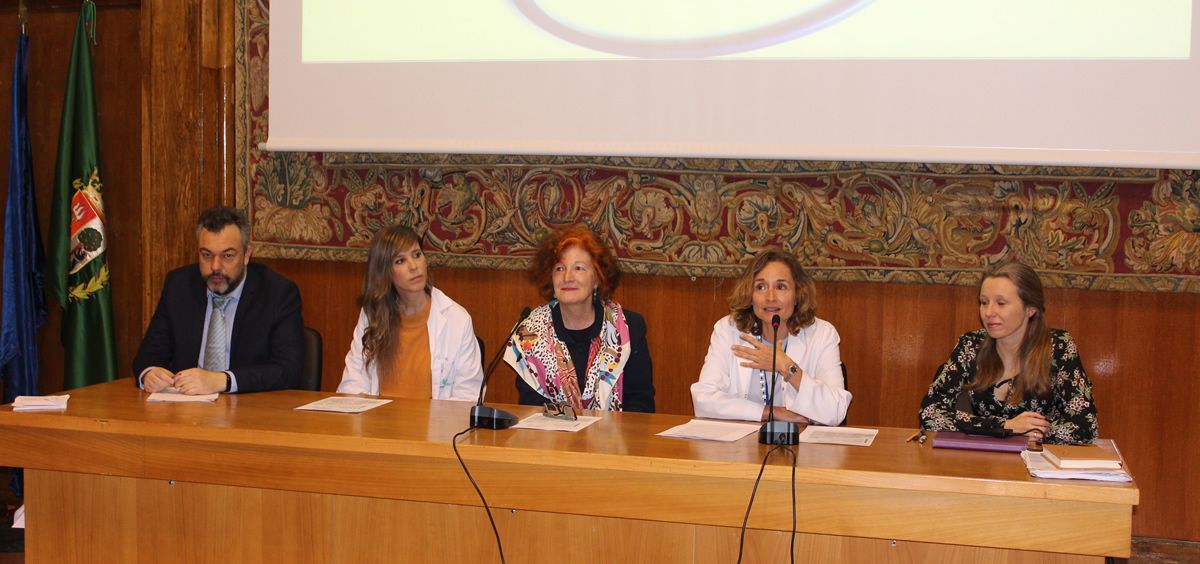INVESTIGADORES DEL NODO HOSPITAL UNIVERSITARIO SON ESPASES CELEBRAN, JUNTO A LOS PARTICIPANTES DEL ESTUDIO PREDIMED-PLUS, SU ENCUENTRO ANUAL
Los días 9 y 10 de Julio de 2019, tuvo lugar en el Hospital Universitario Son Espases el encuentro anual entre participantes e investigadores del estudio PREDIMED-Plus. Un total de 335 participantes reclutados en centros de salud dependientes del Hospital Son Espases, forman parte de este estudio, que tiene ya una media de seguimiento de 4 años.
Durante el encuentro, pudimos disfrutar de las ponencias del Dr. Miquel Fiol, Investigador Principal del estudio PREDIMED y director científico del IdISBa, así como del Sr. Antoni Colom, dietista-nutricionista. Como invitados especiales, tuvimos a Maria Antònia Puigros y a Pere Berga, expertos en coaching nutricional, que dieron a los participantes indicaciones de cómo mantener la motivación para su participación a largo plazo en el estudio PREDIMED-Plus.
Gracias al apoyo de la empresa Agromart Balear, dedicada a la venta de fruta, verdura y otros productos locales de Baleares, pudimos sortear entre nuestros participantes dos cestas valoradas en 75 euros cada una.
La nota lúdica la puso una banda de música que versionó diversos éxitos musicales de ayer, hoy y siempre, con los que nuestros participantes e investigadores pudieron bailar y disfrutar del buen ambiente y la buena compañía.




